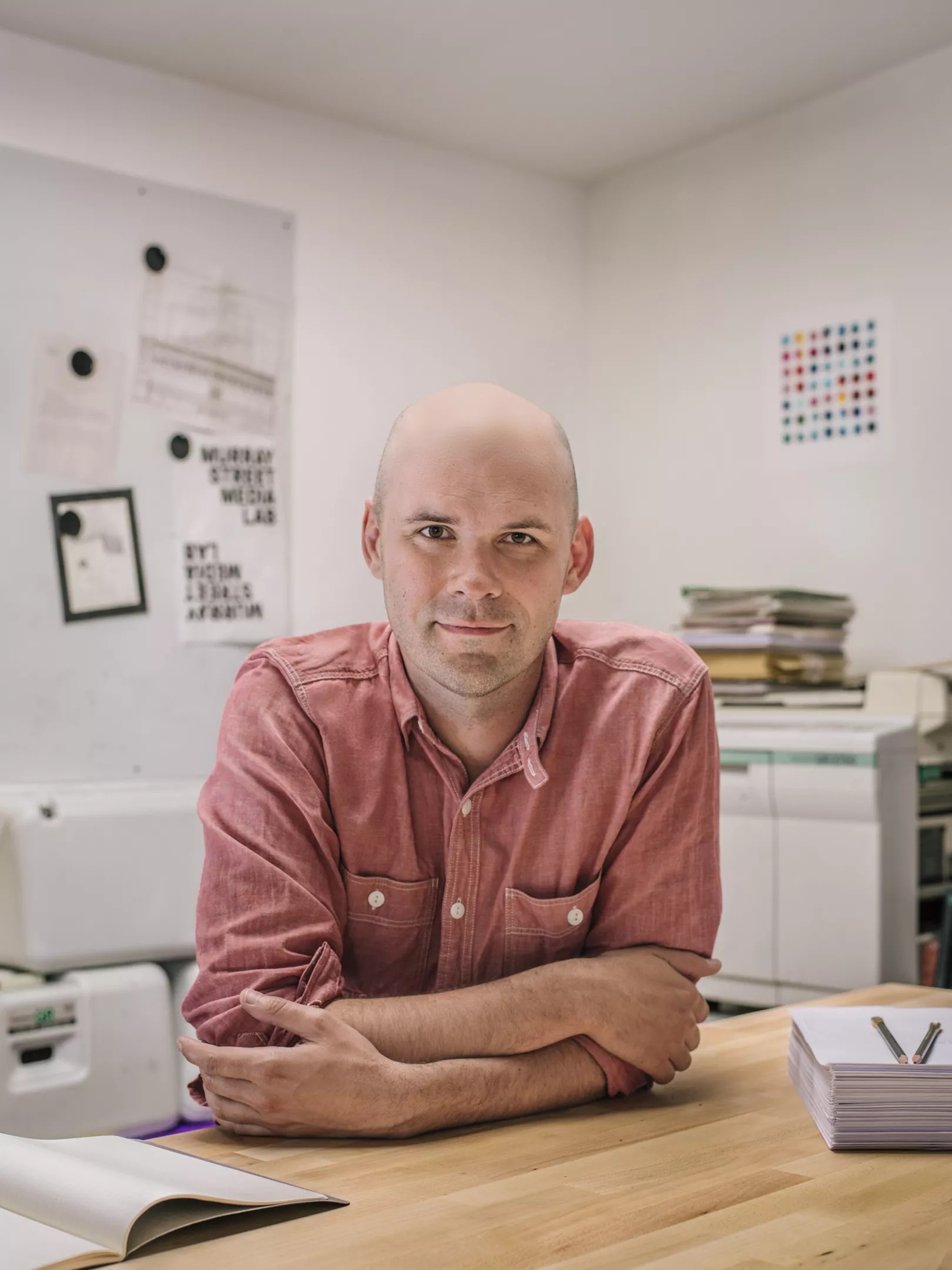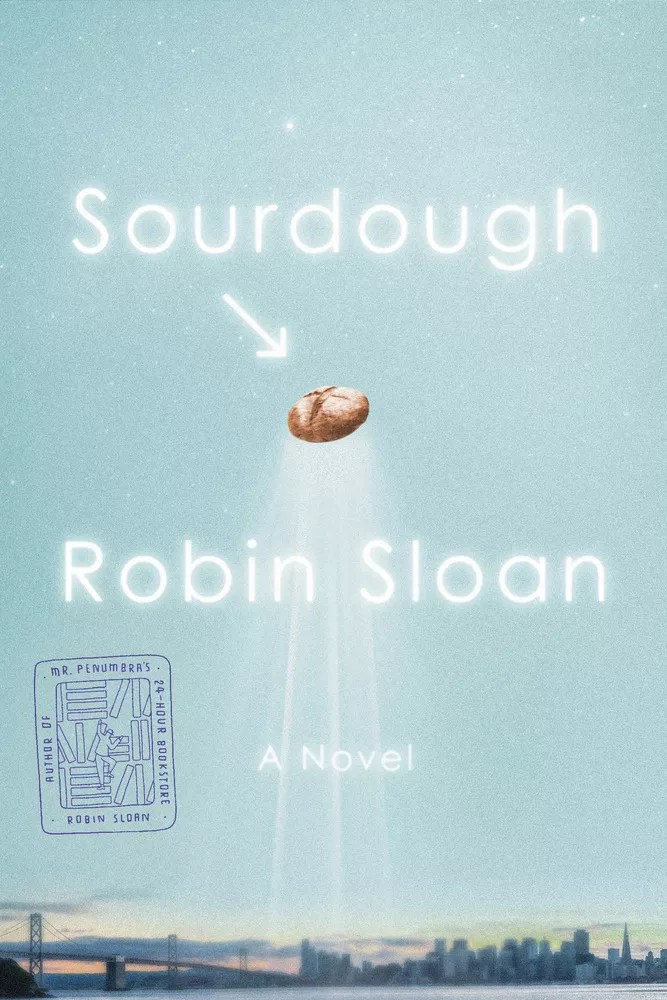
Justin Kaneps

Audio By Carbonatix
In 2012, Robin Sloan brought us Mr. Penumbra’s 24-Hour Bookstore, an adventurous novel set in the San Francisco tech world. Sloan’s latest book is set in the same location, but focuses on an equally fascinating subject- the food world. Whether you’re into food, or just like a good story, this book will hit the spot.
I caught up with Robin Sloan to talk a little about sourdough bread, the origins of this novel, and his own food journey.
Q: Tell me a little about your book.
A: Sourdough is the story of Lois Clary – a young software engineer from the Midwest. She comes to the San Francisco Bay area to work at a robot company and quickly discovers that life here is just a little more intense and disorienting then she realized, particularly because she … has a really hard time feeding herself.
Just confronted with the necessity of putting calories in her body every day – it’s too much to deal with on top of her work and everything else. Amidst that struggle and that adjustment she gets introduced, by sort of mysterious means, to a sourdough starter and it becomes evident pretty early on that the sourdough starter has literally a mind of its own. From there she gets pulled deeper and deeper into the world of Bay Area food…
Q: What were you interested in exploring about the food world with this book, and how did that play out for you in fiction?
A: I don’t want to pretend that the book is autobiographical or that Lois is me, because neither is true, but what is true is that some number of years ago – certainly at the time that I was writing my last novel, Mr. Penumbra’s 24-Hour Bookstore, I was in a state kind of similar to Lois in the beginning of this book. I certainly enjoyed a good meal, and I loved to scarf down a pizza all by myself, but the actual day-to-day task of feeding myself was just nothing but stress.
You play that game with people and they ask “If you could have a superpower, what would it be?” and usually people say things like “I wish I could fly” or “I wish I could turn invisible.” My answer was always, reliably, “I wish I could photosynthesize.” That would make it so easy, you wouldn’t have to think about it.
I am not like that anymore. I know a lot more about food, I’m a lot more comfortable with foods of all kinds, I’m a better cook, I’m just deeper in that world in a lot of different ways. For me, that journey has been interesting and really Illuminating. So I guess the root of the story here was all of the things that I personally learned along the way about myself, and also just about the history of food and the history of eating, that I thought were really fascinating and pretty soon they started to sort of clump together and I realized that maybe something with the shape of a novel was forming.

Sourdough explores the fascinating food subculture of the San Francisco Bay area.
FSG
Q: Sourdough is a captivating story with so many unexpected twists and turns. What gave you the idea for this book?
A: I will tell you that the actual idea – why a book about a character who gets their hands on this mysterious substance – was that I kept running into these stories from history where something that we take for granted, some part of food culture, whether it’s the Meyer lemon tree or a certain kind of grape that’s used in wine production, or something else is, it turns out, not native to this country or to the Bay Area. In fact, in some cases these things were smuggled in.
There’s this idea in the wine world of a “suitcase clone,” the idea that years ago when fancy wine was becoming a thing in the Bay Area, often a winemaker would either go themselves or send some shadowy courier to the great vineyards of France with instructions to sneak in among the vines under cover of darkness and go “snip snip” and take a little piece of that vine and wrap it in wet towels and stuff it in a suitcase and bring it home so it could then be cloned and propagated. Voila: Now this California winery has the same grapes (not really the same grapes, but whatever) the same grapes as one of these centuries-old vineyards in France.
I think those stories are totally amazing and irresistible. So I personally decided that the idea of a sourdough starter with mysterious origins sounded pretty interesting.
Q: Do you have a sourdough starter of your own, and if so, does it display any strange phenomena?
A: I do have one of my own. I’ve been baking sourdough bread for many years now – not very well. I really have to take pains to say this: I am, like, not a great baker at all. I have to admit that even after all these years I have never forged quite the understanding with my own starter that Lois has with hers. My starter has kind of puttered out a few times and I’ve started over. It’s really not that sort of romantic wonderful relationship that you often hear about these things.
But I’ve enjoyed having it, I’ve enjoyed baking the bread, of course, and eating it, and sharing it with people. I have found – it’s not even like a pet, it’s like a little society, it’s like a little bubbling nation and it rises and it falls and sometimes it’s kind of on the rocks, and sometimes it’s doing great – and it lives in your kitchen. That experience was totally new to me before I started baking the sourdough bread and it has been totally captivating.
Q: Will you talk a little bit about your relationship with food?
A: I can say that I’ve actually reached a milestone in the last few years here in the Bay Area. When I arrived here – a child of the Midwest – there were a lot of things I would say that I didn’t like. I was kind of a grown-up picky eater and so on fancy menus, or even menus that weren’t that fancy, I’d be like “Oh no, I don’t want that, it has anchovies” or “I don’t want that, it has aioli,” or “I’ve never heard of that kind of cheese” or whatever.
This is obviously common, it’s not a weird thing, but over the years, especially under the influence of a few key people in my life, one by one I’ve tried all those things and kind of knocked down all those barriers. Even in the last year, I feel like the last few things, the last few “Oh, I don’t like that” picky eater holdouts fell by the wayside. I’m finally down with little salty fishes like sardines and anchovies. Now I can’t get enough of them. I spread them on toast and watch their little preserved guts kind of smear into fishy butter and I’m totally into it. But if I had tried to serve that to the Robin Sloan of 2005, a fresh arrival in the Bay Area, I would have been like “uhhh, gross.” So it’s been a journey for me, and a good one.
Q: What are you hoping your readers will take away from this story?
A: First and foremost, I just hope that they enjoy reading it. I think in the weird, chaotic world that we live in now there’s actually great utility to a novel that’s fun to read and kind of makes you smile and that you enjoy the time that you spend with the characters.
If there’s anything more abstract on top of that- there’s a line that gets repeated a couple times in the book: “nothing is natural.” There’s a scientist character who kind of insists it and then another character sort of says “you know, I think I agree with her, nothing is natural.”
That’s sort of what I think. Again, it’s founded in the history of these things. You look at the way food and plants and cuisines have migrated around the world – the fact that tomatoes have not been in Italy for that long in the grand scheme of humans in Italy and likewise, chiles have not been in India for that long. These are all fruits of the colonial migrations in the latter part of the last millennium – again that’s hundreds of years, but that doesn’t make these things natural; it doesn’t make them eternal. They are inventions, they are the result of history and economics and domination – good things and bad things in human history – and to me, that just is a useful lens through which to look at eating.
I think it changes a lot of the arguments, or it should influence the arguments that people are having now around like, what are we supposed to eat? And how do we grow food? And how do we tinker with the things that we do grow using science and cultivation and stuff like that? So I hope that maybe by the end of reading it some people agree with me that nothing is natural.
I guess the other thing that I hope makes the book a little different, maybe like Mr. Penumbra’s 24-Hour Bookstore, it kind of dances between genres. There are some parts of it that are just straight-up fiction. There are some parts of it that are kind of a warm tale, like a quest, someone solving a puzzle or mystery. But then, of course in this book there are some parts that almost border on science fiction. I don’t want to offer any spoilers, but the starter starts to exhibit some pretty strange behavior and things get pretty weird by the end of it. I hope that it finds an audience among people who maybe don’t think they like those kind of books or don’t know that they like those kind of books but then by the end of it they’re like “okay, that was a little weirder than I expected, but it was pretty cool.”